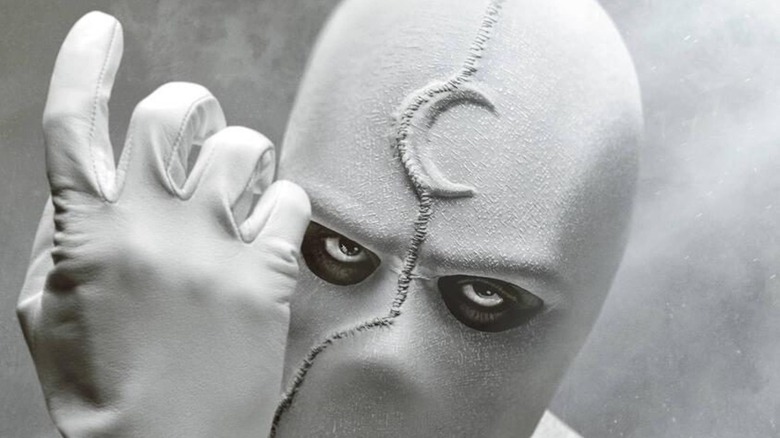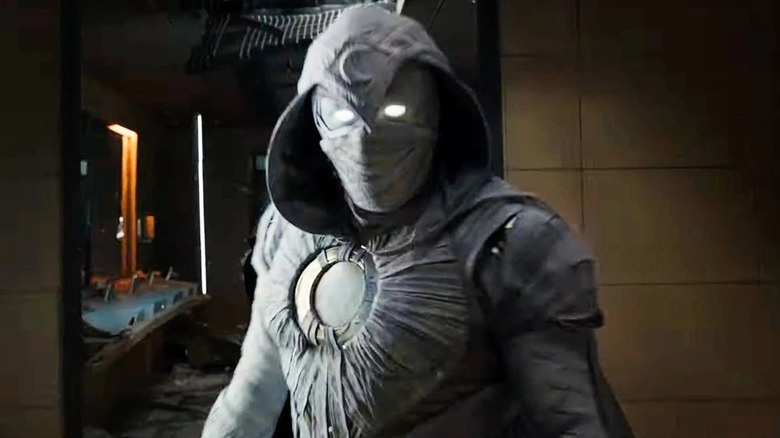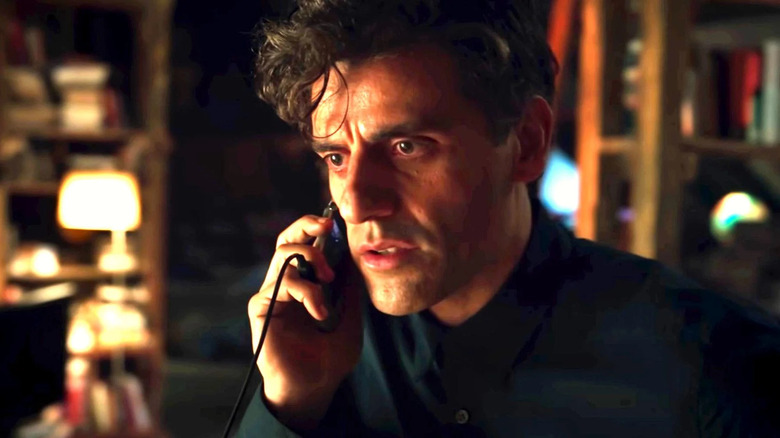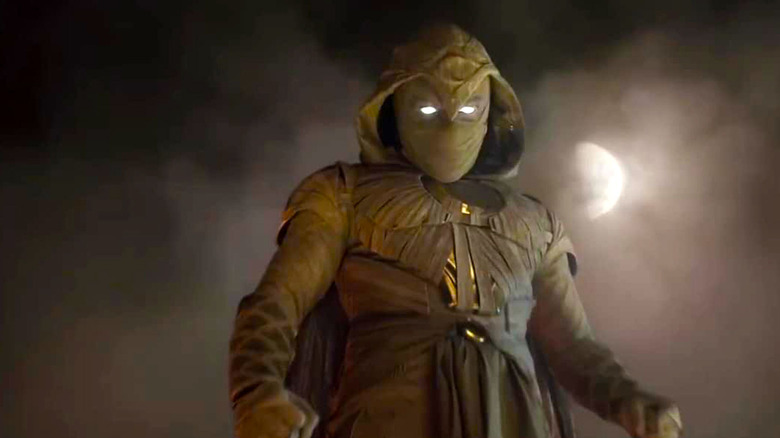Moon Knight Is A 'First Step' Into Understanding Egyptian Culture, Says Director Mohamed Diab
In the new superhero television series "Moon Knight," currently streaming on Disney+, we meet character named Steven Grant (Oscar Isaac) who begins experiencing blackouts and finding himself in situations he has no memory of entering. By the end of the show's first episode, Grant will take on the persona of the Egyptian deity Khonshu (voiced by F. Murray Abraham), the god of the moon. Grant becomes the Moon Knight. Of course, the story will become far more complicated, as Steven Grant is but one personality of Marc Spector, a man suffering from dissociative identity disorder.
The executive producer and one of the directors of "Moon Knight" is Mohamed Diab, the filmmaker behind the Egyptian thrillers "Amira," "Clash," and "Cairo 678." Diab was born in Egypt and has rightly complained that depictions of his home country in American media has left a lot to be desired. Far beyond the usual cliched images of Egypt seen in 1930s colonialist fantasies like Karl Freund's "The Mummy," Diab criticized "Wonder Woman 1984" for handling Egypt incredibly irresponsibly, pointing out that Egyptian people are too often exoticized.
With "Moon Knight," which involves Egyptian deities, Diab has seen an opportunity to set things right. In an interview with The Hollywood Reporter, Diab revealed his frustrations with Hollywood, and what he intends to correct.
That's not Egypt
First and foremost, Diab wanted to make sure to correct the usual whiffing of Egypt's geography:
"As an Egyptian, most of the time that you see Egypt in movies, it's not Egypt. They'll shoot a different country for Egypt, but imagine seeing Paris and then seeing Big Ben in the back. It hurts. Or it's shot in a way that shows the pyramids in the desert. If you actually panned just a little bit, the Pyramids are in the middle of [Cairo]. We call it orientalism when you show people in an exotic and dehumanizing way."
Step one was to hire Egyptian actors and artists:
"And what we did on 'Moon Knight' was the first step of trying to normalize us as human beings, through the Layla (May Calamawy) character. It's very important to see us. And by the end of the show, there's going to be a couple of surprises about Egypt that are very important. So I would call this a very important first step into understanding our culture a little bit. I also got an Egyptian composer [Hesham Nazih], and one of the three editors is Ahmed Hafez, an Egyptian. Even the rap songs and music that we used were all Sarah's suggestions. But I'm so proud of it, and I feel like it's going to give you an experience and a feeling that is unique and different."
Khonshu
The central deity in "Moon Knight" is Khonshu, also spelled Khonsu, is the son of Amun (the god of the sun, who would eventually be merged with Ra in the 16th century, emerging as Amun-Ra) and Mut, who — according to certain creation stories in ancient Egyptian mythology, gave birth to the world. Khonsu also played an important part in creation myths, having been assigned with giving creatures new life. Khonsu, in representing the moon, is often seen as one of the central deities overseeing the passage of time alongside Thoth.
Khonsu was mentioned in the earliest of Egyptian funerary texts, the earliest of which — from the Old Kingdom — stretch back to 2686 BCE. Kohnsu became more prominent in texts from the New Kingdom (about 1570 BCE), and the famous Temple at Karnak, built during the Ramessid Dynasty, had a lot of iconography devoted to him. At Karnak, Khonsu is seen as a snake who fertilizes the egg that hatches the universe. Khonsu remained a deity of healing for millennia, even being mentioned by Ptolemy IV as late as 250 BCE.
Moon Knight first appeared in Marvel Comics in 1975, and Khonsu, now spelled Khonshu, granted the title character his superpowers. Khonshu resurrects the Moon Knight when he dies, and increases his strength and already-impressive fighting abilities based on the phases of the moon. On full moon nights, his powers are the strongest. As far as limited research reveals, Khonsu was not known for possessing humans or granting them superpowers in Egyptian mythology, and his employment in a fantasy comic book story may strike a reader as the very kind of exoticization that Diab mentioned above. Diab, however, has 5,000 years of history to delve into in order to correct this.
Egyptian film
Diab is one of the more notable Egyptian directors currently working, and his involvement in "Moon Knight" could yet prove to be a boon for visibility of the Egyptian film industry. One needn't look very far for bad depictions of Egypt in American film — even classics like "Raiders of the Lost Ark" have a lot to answer for — and there are plenty of notable Egyptian films that one can reach back to.
If Diab is successful in piquing viewers' interest in Egyptian culture, one may find themselves looking up the 1969 film "The Night of Counting the Years," about a remote tribe selling ancient artifacts on the black market as their only means of livelihood. That one is often called one of the best Egyptian films ever made. Or the 1982 film "The Bus Driver" about a working-class man who has to work constantly to retain any sense of harmony in his family. Or perhaps the 2011 film "Asmaa," about a woman wrestling with AIDS and overcoming gender stereotypes.
Or, heck, Diab's own films. "Moon Knight" is no mere escape into the usual playground of the MCU, but an invitation by Diab into Egyptian culture at large. Let's take it.



